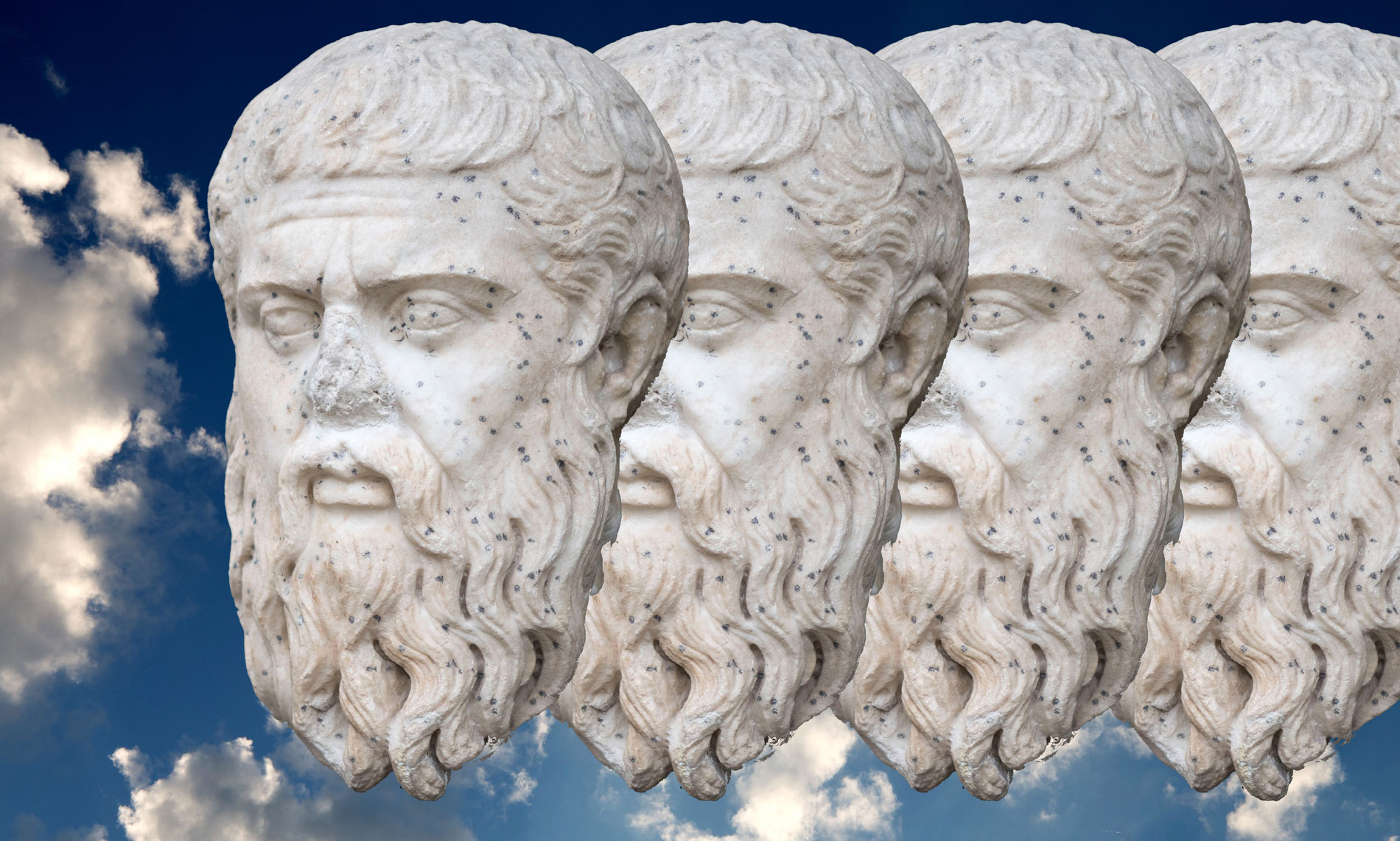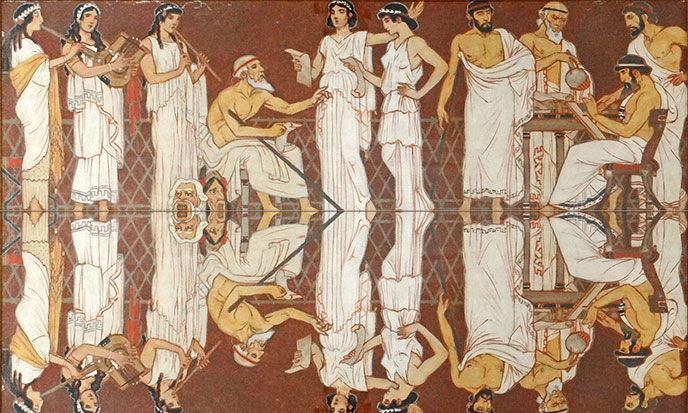
Some will say that I have old Plato in my line of sight. I have already had the opportunity to criticize his myth of the cave, which in my opinion is misunderstood. The logos and the heaven of the intelligibles are other misunderstandings of the old Greek sage.
Misunderstandings with serious consequences. As cumbersome as the hours spent listening to old dry typists, to list litanies of praise about these imbecilities to which they themselves only caught slabs. Because there is nothing to peck in there, word of philosopher. All that has been told to you about that, are but delirium craps. Everything happens as if the revered Plato had received a very old, very technical education, to which he wouldn’t got a single bit. Lack of context, no doubt. And philosophers to rave about through the centuries. For them, the less clear, the more philosophical. I will never be recognized by my peers …
The missing context
Plato distinguishes two worlds, the sensible world in which we live, and the world of pure ideas, fixed for eternity in a perfect sky, immutable and inaccessible to humans. He calls the latter the heaven of intelligibles. The link between these two plans is conceptual, not real. In other words, every real being is the representation of an idea, a pure and perfect idea whatever the diversity of the representations. For example, no human looks alike in appearance but everyone is a human. This common point is an idea of human, universal, beyond gender and other peculiarities. This general idea is transcribed in the sensitive world, but the transcript is not faithful to the source, according to Plato. It has diversified by multiplying itself; its original pure form has become corrupted. For Plato, terrestrial life turns the gaze of man from the sky away from ideas in which every part of the world, every event, every feeling finds its immutable principle. Phew! All that shit is incredibly complicated and totally useless … so it’s good philosophy!
Now if we add the context that was missing to Plato, we gain a real understanding of all this gibberish. The world of pure ideas –models and archetypes of their pale earthly reflections– could become something else … Star visitors have come here several times. Their task was to terraform this wild planet, to make it habitable and conducive to the development of a superior species, ours. Our humanity, the fifth, was created and educated by those visitors who held science and technology far more advanced than ours is today.
Plato studied in Egypt and probably also in the druidic universities of Celtic Gaul, renowned for the quality of their teaching. But in the absence of the above context, there is not much understood, and to compensate for this lack of coherence, the Greek philosopher has developed a whole mental system void of meaning. This conceptual edifice served as a basis for a pseudo-rational philosophy that was lost in the shifting meanders of absurdity and nonsense. The Druids had described him as a technological and superhuman past, he made some porridge for Schrodinger’s cat. Alas, three times alas, his absurdities are still taught all over the world. We think we dream. How long will it take for philosophers to wake up?

What Plato did not understand
For lack of understanding the greatness of the human past, failing to represent the technological wonders of those he called the gods, Plato went astray and behind him all the human wisdom followed suit, and history of the world has been cut off from the best. His Intelligibles are rather unintelligible, aren’t they? Let’s have a deeper look. When Plato distinguished two worlds, he remembered perfectly what the druids told him. There is our world –this planet earth– and the world of the gods, on another planet, Nibiru or Hyperborea. On the planet of the gods, there were genetic banks for plants, animals and all living beings. This is what the druids tried to convey to young Plato –too sad they lost. The world of pure ideas is a genetic bank. With the help of these genes, Enki or Prometheus, the divine geneticists, created all the forms of life that we know. Or rather they kicked off, and the universal laws of evolution implemented in the DNA have followed the work. It was nevertheless a colossal work. Enki and Prometheus were not alone. Aboard the Hyperborea mother-ship lived tens of thousands of gods, assisted by millions of angels, their specialized workforce.
When Plato thinks that behind all real beings there is a divine model that he takes for a pure and perfect idea, he tries to remember this history of genetic bank of the gods before. He wades, the unfortunate, he’s wrong but can we blame him? The state of knowledge at the time made it impossible to understand genetics. It is not the same today. This reproach that can not be made to Plato would also apply to the writers of the Bible, to the translaters of the Mahabharata and Ramayana, and in general to all the ancient texts which exposed previous facts by not including much thing. Now that the context is restored, and that we know technology, it is possible to restore the truth about these facts of the high antiquity and the exploits of the former gods. While they were not gods in the current sense of the word, but they still did a good job, right?


